TROVALUSCI INTERNATIONAL SYMPOSIUM
On Multiscale and Multiphysics Modelling of 'Complex' Material (MMCM17) (17th Int. Symp.)

Bio |
CV |
Publications
This major symposium is in honor of the distinguished work and lifetime achievements of Prof. Patrizia Trovalusci, well-known for her contribution on multiscale and multifield modelling of 'complex' materials.
Prof. Patrizia Trovalusci was educated at Sapienza University of Rome. She is PhD and Full Professor of Solids and Structural Mechanics at Sapienza University of Rome (Italy), founded on April 20th 1303 by Pope Boniface VIII as “Studium Urbis” and now organized in 11 Faculties in the new university campus designed by the architect Marcello Piacentini in 1935.
Prof. Patrizia Trovalusci is the Director of the Doctoral Program in Structural and Geotechnical Engineering (Sapienza). She has published over 200 articles in international journals, volumes, conference proceedings and more; she has organized 3 international Conferences, 20 International Minisymposia and 3 International Advanced Courses on Solid and Structural Mechanics: Continuous Generalized, constitutive aspects ("innovative", composite, and traditional materials, masonry); Masonry structures of historical and monumental interest, computational aspects. She is a member and / or Associate Editor of several editorial boards of international journals; of numerous international scientific societies and competition commissions, national and international, for teacher recruitment. She edited a number of Special Issues on prestigious international journals. She is the 'Principal Investigator' of numerous competitive national Research Projects and participant in international Research Projects. She has given 11 Plenary/KeyNotes lectures on Multiscale Methods for Materials with Microstructure. She teaches Solids and Structural Mechanics and Structural Performance of Historical Masonry in BCs and MSc courses and coordinates the Degree Atelier of "Reuse and Recycling Centers" (LAB-RECYCLING) in the Faculty of Architecture (Sapienza). In 2017 was awarded with the Computational Methods Award by the Committee of the International Conference on Computational Methods.
Prof. Patrizia Trovalusci coordinates the research group on 'Multiscale and Multiphysics Modelling for 'Complex Materials' (MMCM): a research team of experts in advanced mechanical modeling and development of multiscale computational methods for the analysis of composite and microstructured materials. The main skills of the group regard the formulation of theoretical models and computational strategies via multiscale and multifield approaches for the simulation of complex materials, with internal structure and complex constitutive behaviour. The research team focuses on non-classic continuum formulations and constitutive models connecting different scales of descriptions for accounting at the macroscopic level of the microscopic characteristics and capturing the evolutionary behaviour, exploiting the dialogue among the different descriptive levels. Moreover, advanced computational tools, such as enhanced Finite Element formulations based on mixed-type variational functionals, Virtual Element Method and interactive Multiphysics codes, are developed to process and manufacture composite materials and to further progress in material science and structural engineering, structural analysis and optimization of new buildings and risk mitigation and reliability of our Cultural Heritage.
Prof. Patrizia Trovalusci has since 2006 coordinated various editions of International Symposium on Multiscale and Multifield Modelling of 'Complex' Materials (MMCM), within the framework of several international conferences and this time this same symposium (MMCM) is dedicated to her and bears her name.
This symposium will provide a forum to present and debate several advanced non-standard continuum approaches and computational methods for studying the behavior of materials and structures. The goal is to gather researchers (engineers, physicists, mathematicians) specialized in solids mechanics, computational methods and numerical modelling for simulating the mechanics of 'Complex' materials, perceived as material with microstructure and complex behavior (plasticity, damage, growth etc.). The computational aspects will play a central role, but papers can focus on broad range of theoretical, phenomenological and numerical aspects either related to the material modelling or the structural one.
More information can be find on this Web site (
https://sites.google.com/a/uniroma1.it/multiscale-and-multiphysics-modelling-for-complex-materials)
orcid.org/0000-0001-7946-3590
Distinguished authors who have already expressed interest in participating:
- Professor Aifantis Elias, Aristotle University of Thessaloniki, Greece
- Prof. Barretta Raffaele, University Federico II of Naples, Italy
- Dr. Cui Fangsen, Agency for Science, Technology and Research (A*STAR), Singapore, Senior Scientist
- Prof. De Miranda Stefano, University of Bologna, Italy
- Professor Di Paola Mario, University of Palermo, Italy
- Professor Elio Sacco, University Federico II of Naples, Italy
- Professor Eremejev Victor (Co-Chair), Gdansk University of Technology, Poland
- Dr. Fantuzzi Nicholas (Co-Chair), University of Bologna, Italy
- Professor Fraternali Fernando, University of Salerno, Italy
- Professor Gambarotta Luigi, University of Genoa, Italy
- Prof. Gao Xiao-Wei, Dalian University of Technology, China
- Professor Ghosh Somnath, Johns Hopkins University, USA
- Professor Hu Heng, Wuhan University, China
- Professor Ibrahimbegovic Adnan, Université de Technologie de Compiègne, France
- Dr. Leon Misnaewski, Denmark Techinical University, Denmark, Senior Scientist
- Dr. Leonetti Lorenzo, University of Calabria, Italy
- Professor Liu Gui Rong, University of Cincinnati, USA
- Dr. Macorini Lorenzo, Imperial College London, UK, senior Scientist
- Professor Marotti De Sciarra Francesco, University Federico II of Naples, Italy
- Professor Pirrotta Antonina, University of Palermo, Italy
- Prof. Radoslaw Mania, Lodz University of Technology, Poland
- Prof. Raj Das (Co-Chair), RMIT, Australia
- Professor Ramesh Talreja, Texas A&M, USA
- Professor Rosati Luciano, University Federico II of Naples, Italy
- Professor Schmauder Siegfried, University of Stuttgart, Germany
- Professor Schrefler Bernhard, University of Padua, Italy
- Prof. Seong Su Kim, KAIST, South Korea
- Professor Tomasz Kubiak, Lodz University of Technology, Poland
- Dr. Tuna Meral, Eloglu Istanbul Technical University, Turkey
- Prof. Vasta Marcello, University of Chieti-Pescara, Italy
- Prof. V. Gattulli, University of L'Aquila, Italy
- Prof. Xiao Chen, Denmark Techinical University, Denmark
- Dr. Shuxin Li, Wuhan University, China & University of Bristol, UK
ROUND TABLE DISCUSSIONS
A round table discussion open to everyone interested will be organized at a specific date and time during the symposium. It will be a platform for high level representatives of various industries, technologies, and academic disciplines to freely discuss and debate all topics of this symposium, and identify positive and efficient pathways towards sustainability in industrial practices, technologies, and research.
You are cordially invited to actively participate in this symposium by submitting and presenting a paper, or by attending the round table. We look forward to meeting you in Phuket, December 2022.
Click here to see the detailed scope and topics.
To download Flyer, click on the icon:

 Click here to see the General Author Invitation
Click here to see the General Author Invitation

Click here to submit abstract :
https://www.flogen.org/sips2022/abstract_submission.php
CHAIRS
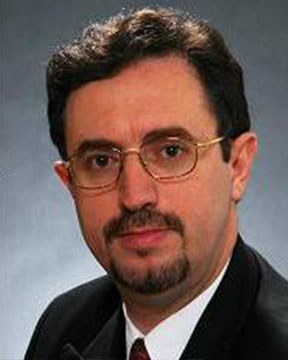
Dr. Florian Kongoli
CEO
FLOGEN Technologies
Canada, [Bio]
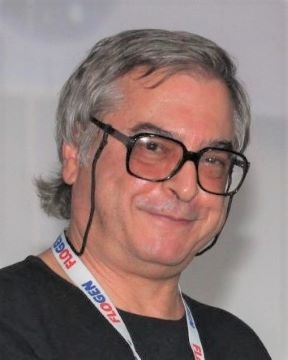
Dr Elias Aifantis
Professor
Aristotle U. of Thessaloniki
Greece, [Bio]
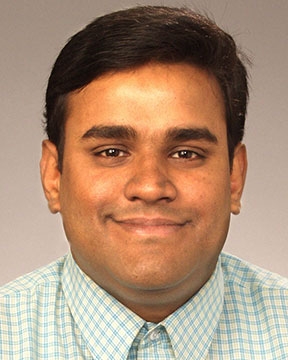
Dr. Raj Das
Principal Investigator
RMIT U. in Australia
Australia, [Bio]
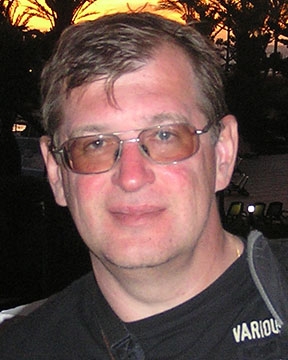
Dr. Victor Eremeyev
Professor
Gdansk U. of Technology
Poland, [Bio]
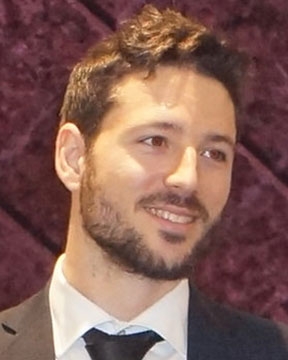
Dr. Nicholas Fantuzzi
Professor
U. of Bologna
Italy, [Bio]









